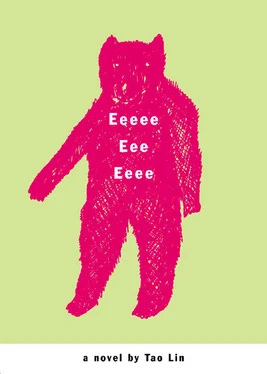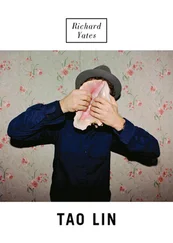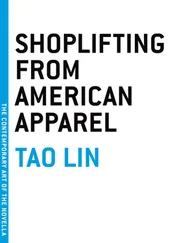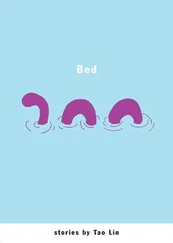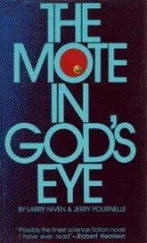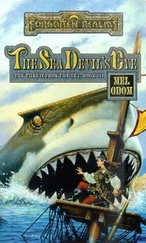Tao Lin - Eeeee Eee Eeee
Здесь есть возможность читать онлайн «Tao Lin - Eeeee Eee Eeee» весь текст электронной книги совершенно бесплатно (целиком полную версию без сокращений). В некоторых случаях можно слушать аудио, скачать через торрент в формате fb2 и присутствует краткое содержание. Год выпуска: 2007, Издательство: Melville House, Жанр: Современная проза, на английском языке. Описание произведения, (предисловие) а так же отзывы посетителей доступны на портале библиотеки ЛибКат.
- Название:Eeeee Eee Eeee
- Автор:
- Издательство:Melville House
- Жанр:
- Год:2007
- ISBN:нет данных
- Рейтинг книги:3 / 5. Голосов: 1
-
Избранное:Добавить в избранное
- Отзывы:
-
Ваша оценка:
- 60
- 1
- 2
- 3
- 4
- 5
Eeeee Eee Eeee: краткое содержание, описание и аннотация
Предлагаем к чтению аннотацию, описание, краткое содержание или предисловие (зависит от того, что написал сам автор книги «Eeeee Eee Eeee»). Если вы не нашли необходимую информацию о книге — напишите в комментариях, мы постараемся отыскать её.
Eeeee Eee Eeee — читать онлайн бесплатно полную книгу (весь текст) целиком
Ниже представлен текст книги, разбитый по страницам. Система сохранения места последней прочитанной страницы, позволяет с удобством читать онлайн бесплатно книгу «Eeeee Eee Eeee», без необходимости каждый раз заново искать на чём Вы остановились. Поставьте закладку, и сможете в любой момент перейти на страницу, на которой закончили чтение.
Интервал:
Закладка:
“Um,” Andrew said. “I wanted to come.” He went to the bookstore and sat and read for two hours. He went to the café. He bought a muffin and ate it. He went to the poetry section and a hamster ran away around a corner.
Andrew walked around the corner.
The hamster was staring at Andrew.
“Come here,” the hamster said.
Andrew went to it.
“Go here,” the hamster said. It moved a little.
“Where?”
“Just look,” the hamster said.
“I am.”
The hamster was moving its arms a little. It pointed somewhere a little. “There,” it said.
“Sorry,” Andrew said. “I don’t know where you’re talking about.”
“Wait,” the hamster said.
But it went to leave.
“Sorry,” Andrew said at it.
The hamster turned around.
It had very tiny arms.
“Try something else,” Andrew said. “Can you point by headbutting?”
They went back to where they were before.
“Okay,” the hamster said. “Go here.” It walked carefully into a wall.
Andrew kneeled and touched where the hamster headbutted.
“It’s a secret passageway,” the hamster said. “Push it.”
Andrew pushed the wall.
“Wait,” the hamster said. It looked around.
“Wait. I’m lost.”
“Just tell me what it is.”
“Wait,” the hamster said.
“Just tell me something first,” Andrew said.
“Fine,” the hamster said. “But in the park.”
They went to the park.
“Under the world there is a dolphin city,” the hamster said carefully. “It isn’t only dolphins. There are bears and moose.”
“Bears and moose,” Andrew said. “Do they fight?”
The hamster was on the bench. It had a neutral facial expression. Andrew stared at it. “Do they fight?” Andrew said after a minute. “Moose have antlers.”
“I’m thinking,” the hamster said. A few minutes passed.
“Just forget it,” Andrew said. “It doesn’t matter. They don’t fight.”
“No,” the hamster said. “Just let me think for a minute. I have to walk to think.” The hamster got off the bench and walked around on the ground.
A few more minutes passed.
The hamster climbed back on the bench and sat.
“There are hamsters,” it said.
Andrew looked at it while it talked.
The hamster had a very neutral facial expression.
“Under the bear and dolphin city there is another metropolis,” the hamster said very slowly. “A land of hamsters.” A few minutes passed. “Hamsters are sad,” the hamster said. “Below the continent of hamsters … wait … I need to be careful. The dolphins are sad too. Below the hamsters …”
The hamster got off the bench and walked around.
“Are we friends?” the hamster said.
An owl came down and grabbed the hamster.
“Help,” the hamster said.
Andrew stood.
The owl was gone.
The next day Andrew e-mailed Mark saying he was sorry he had ruined Mark’s day. When he typed the email he felt sarcastic and bored. Sitting on the train later he thought, “I feel sarcastic and bored,” though he did not. Mark did not respond, but a few weeks later flew back to Singapore, where he had been born 24 years earlier. Andrew’s other acquaintance in New York City, Michael Fisher, e-mailed Andrew asking if Andrew wanted to see a movie. Andrew said yes, but an independent one. Michael was late. He said he was on the train and it stopped and they told everyone to get off. Andrew said he hated New York City. Michael said it was probably like this everywhere. Andrew said he had been to London and Taiwan and that their subway systems were both much better than New York City’s. Michael said New York City’s subway was older. Andrew said they were late for the movie. The theatre was small. There seemed to be no empty seats. The movie had started. “There’s some in front,” Andrew said. “I can’t sit in the front,” Michael said. Andrew looked at Michael. “I’ll stand here. I’m fine,” Michael said. “Oh,” Andrew said. He went to the front and sat. He stared at the movie. There were days, recently, where he felt his inner-guide — himself, really; who was he kidding? — stop walking, sit down, stare abstractly into space for a very long time, laugh suddenly, stand up, clear its throat, affect seriousness and authority, look around, point in some vague direction, and continue onward. What did this mean? Maybe it was one of those things you ignored, like when couples fought in the streets. Andrew didn’t know. He himself had once fought in the streets. On 10th Street or something he had sort of cornered his then-girlfriend, who was crying a little, against a fruit stand.
“Let’s go somewhere else to do this,” he said.
“You’re embarrassed.” She wasn’t crying anymore, but looked a little bored. “Look at you, embarrassed.”
“This is embarrassing,” he said. “Yeah, I am embarrassed.” Then felt good for being honest and agreeing for once, like a kind of grown-up — instead of automatically disagreeing in order to place himself in a position where he could prove himself right and some other person wrong — and wanted to console her (hug her, maybe; the fight was over) but instead stared at her. He didn’t feel good anymore, only acutely and comprehensively unenthusiastic, as there was something joyless, unimaginative, and ultimately interminable about the truth. A world without right or wrong was a world that did not want itself, anything other than itself, or anything not those two things, but that still wanted something. A world without right or wrong invited you over, complained about you, and gave you cookies. Don’t leave , it said, and gave you a vegan cookie. It avoided eye contact, but touched your knee sometimes. It was the world without right or wrong. It didn’t have any meaning. It just wanted a little meaning.
“Can we stop standing here?” said Andrew’s then-girlfriend. “Can we eat now?”
After fighting they would feel both ethereal and adamantine, like crystals — and legitimate, like after a good workout. They would relax a while. Put some fruit on a plate, eat two or three Kit-Kat bars, and, between shows on TV, then, with the TV still on — and the following being more the result of logistics and precondition (laying on the same twin-size bed) than lust, or love, or whatever — have an impersonal sort of sex. In class the next day, well rested and decently-caffeinated, they would sit there making what-if jokes. (“What if I brought a tent to class, and went inside it?”) Evenings, they’d fight. (“You do your hair before seeing other people but not before seeing me, I noticed.”) Weekends, one of them would suggest hanging out with friends and then on Sunday hate the other person for acting different around friends—“So you like Catcher in The Rye because you identity with everyone not Holden, right? I mean, I don’t understand. You yourself act so fake”—and fight. It was not a bad life. It was a life hollow with too much affect from either extreme. It was like living inside a cave: things in the periphery always seemed a little phosphorescent; whenever anyone talked it echoed and sounded melodramatic; and somewhere nearby was a waterfall, the noise of which made it always feel like you’d just been tranquilized, tagged, and released — a wholesome, non-drowsy drowsy sort of feeling, not unlike being on Tylenol Cold.
But that was two years ago, junior year in college. Sometimes now Andrew would be on the train, reading selections from Schopenhauer ( Studies in Pessimism —he shouldn’t, he knew, no one should ever), or else sitting there, at one of his two jobs — at the IFC movie theatre on 3rd Street, or in NYU’s library, by Washington Square Park, checking his e-mail — and he’d catch himself thinking, “I don’t know how to feel happy,” or “I am fucked,” or, more recently, “I___ ___,” like a Mad Libs, which was kind of hopeful, he guessed; not completely a bad sign. What frightened him (though sometimes calmed him) was the first of those thoughts, about not knowing how to be happy; there was something irreversible about it, except possibly by potion or true love, like in every movie by Disney, as it was like a fairy tale in that sketched-out, theoretical way. But it was a fairy tale gone wrong, without any domestic whimsy or fast-moving plot, and in real time, without any pleasant summations of long periods of despair, loneliness, and ennui. It just didn’t seem good, or allowed. It felt offlimits, or something. Was this for real? Andrew had forgotten how to be happy! He suspected that it involved unwarranted feelings of fondness for other people, too much self-esteem, a sort of long-term delusion that manifested as charisma, and a blocking out of certain things, like lonely people, depressed people, desperate people, homeless people, people you’ve hurt, people you like who don’t like you, politics, the nature of being and existence, the continent of Africa, the meat industry, McDonald’s, MTV, Hollywood, and most or all of human history, especially anything having to do with the Western Hemisphere between 1400 and 1900, plus or minus 200 years — but he wasn’t sure. Why did it involve so many things? Maybe it was just too hard. One time Andrew had wanted to go to a Rainer Maria concert, had ripped out and carried around for weeks the listing from the Village Voice; but the day of the show at work in the library, sitting there, staring across the study area at something inanimate yet somehow vaguely annoying — though what wasn’t vaguely annoying, these days? — thinking about staring at the web page where he would have to click something to find out how to pay with his HSBC checking card, doing the e-mail confirmation, taking the train to Red Hook or wherever and asking and getting told the wrong directions and ending up under some highway overpass, feeling homeless and addicted to heroin, he’d thought, finally, then — with a strange, voice-over sort of detachment, as if viewing his own life on a movie screen, in an empty theater—“It’s too hard.” It had become an inside joke, but a private one (which complicated things in a bad way), for Andrew to wait until the last moment and then no matter how easy the task think, “It’s too hard.”
Читать дальшеИнтервал:
Закладка:
Похожие книги на «Eeeee Eee Eeee»
Представляем Вашему вниманию похожие книги на «Eeeee Eee Eeee» списком для выбора. Мы отобрали схожую по названию и смыслу литературу в надежде предоставить читателям больше вариантов отыскать новые, интересные, ещё непрочитанные произведения.
Обсуждение, отзывы о книге «Eeeee Eee Eeee» и просто собственные мнения читателей. Оставьте ваши комментарии, напишите, что Вы думаете о произведении, его смысле или главных героях. Укажите что конкретно понравилось, а что нет, и почему Вы так считаете.
